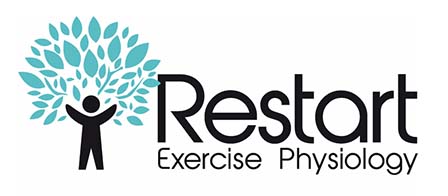What is persistent, or chronic pain?
Chronic pain is classified as pain that lasts for over 3 months. It can occur anywhere in the body with a range of possible causes. It is common in Australia, with 1 in 5 Australians aged 45 and over suffering from persistent pain. The pain can come and go over time, and vary in severity. This can make it quite difficult for people living with chronic pain to understand their condition, communicate their needs and manage their daily activities on their own. Persistent pain is very difficult to live with and more than half of Australians with chronic pain develop depression or anxiety as a result.
Thankfully persistent pain doesn’t always have to stop you from finding ways to improve your health and fitness. An Exercise Physiologist can help you to develop a personalised fitness plan that both rehabilitates your pain point and improves your overall strength and conditioning.
Types and causes of chronic pain
The causes of persistent pain are almost endless. The pain may vary from sharp to dull, and from mild to severe over time. It may move to different parts of the body, as the pain flares up, or it may always be in one location. Pain may also improve or worsen with activity, and it’s important to keep track of what movement is safe and beneficial for you. That’s why it’s important to let your Exercise Physiologist know your history so that they can understand how to help you build a flexible and tailored plan that will work on days when you have varying levels of pain.
Some of the causes of chronic pain include:
- Pain from an unresolved injury
- Muscle pain from a muscle spasm or ‘knot’
- Degenerative joint changes
- Pain following a surgical procedure
- Back pain from improper posture
- Neck pain and headaches from poor work-station set-up
- Cancer-related pain
- General pain due to overall weakness and associated sedentary lifestyle.
Persistent pain may restrict people’s ability or motivation to exercise, and a sedentary lifestyle can lead to comorbidities such as type 2 diabetes, hypertension, insomnia, cardiovascular disease and mood disorders such as anxiety.
Persistent pain can be caused indirectly by a range of underlying health conditions such as:
- Endometriosis
- Inflammatory bowel disease
- Nerve damage
- Myalgic encephalomyelitis
- Fibromyalgia
- Shingles
- Multiple sclerosis
- Arthritis
CHRONIC PAIN MANAGEMENT AT RESTART EXERCISE PHYSIOLOGY
Depending on the cause of the chronic pain, Exercise Physiology may be able to help reduce symptoms and significantly improve quality of life. An Accredited Exercise Physiologist has tertiary qualifications in health or exercise science, with extensive knowledge around the physical mechanisms of pain. This means they can support people with persistent pain to develop fitness routines that work with them, not against them.
At Restart, we educate and inform clients about healthy movement patterns, and encourage the strengthening of muscles and joints with the aim of either removing or reducing pain entirely. Techniques such as activity pacing (a valuable pain management tool that attempts to balance activity and rest in order to increase function and participation in meaningful activities) can helps patients to build sustainable relationships with physical exercise and reduce the risk of developing comorbidities. We will carefully analyse your pain and discuss your diagnosis and symptoms to develop the most suitable exercises.
At Restart Exercise Physiology we understand that persistent pain can be debilitating, and it can make exercise intimidating. We can develop a series of personalised and guided exercises to help you overcome your challenges and make measurable progress towards your goals.
